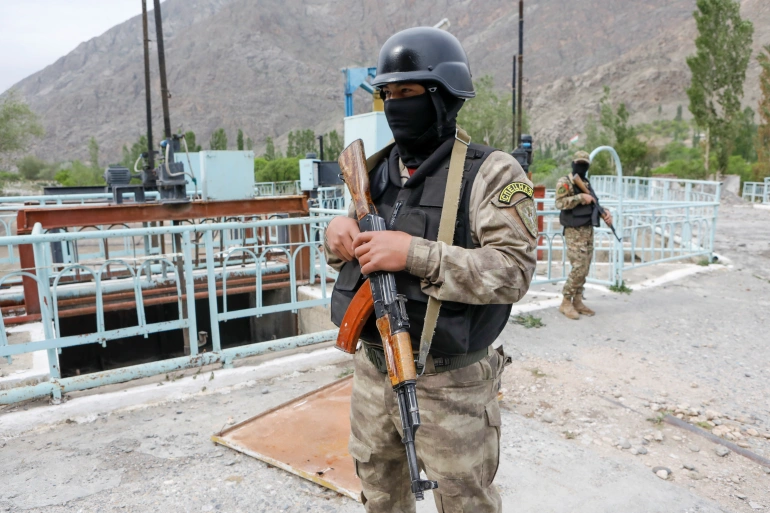
Kyrgyz and Tajik border guards have exchanged fire after a dispute over the border between the two Central Asian nations, officials on both sides said.
The clash on Wednesday, which took place on the eve of a regional security body meeting and against the background of fighting between Russia and Ukraine as well as Azerbaijan and Armenia, started after Kyrgyz border guards accused the Tajiks of taking positions at a part of the border that has not been demarcated.
The Tajik side said in a statement that Kyrgyz border guards opened unprovoked gun and mortar fire on their outpost, killing one border guard and injuring another two, the RIA Novosti news agency reported.
Kyrgyzstan did not immediately report any casualties. More than one-third of the two countries’ 1,000km (600-mile) border remains disputed.
Both Kyrgyzstan and Tajikistan are allied with Russia and host Russian military bases, but fighting over border issues is frequent and last year almost resulted in an all-out war between the former Soviet republics.
Russia called on its Central Asian allies to take urgent measures to bring the situation on the border between the two countries back under control, the RIA Novosti news agency reported on Wednesday, citing a foreign ministry source.
A similar clash in June killed a Tajik border guard. Serious escalations are rare, but fears of a wider conflict stirred last year when dozens died in the worst confrontation between the pair in more than 30 years of post-Soviet independence.
Kyrgyz and Tajik leaders are expected to attend a summit of the Shanghai Cooperation Organisation in Uzbekistan this week alongside Russian President Vladimir Putin and Chinese leader Xi Jinping as well as a host of other world leaders.
For the first time in three years, the summit is being held entirely in person, with the participation of 15 leaders from all eight SCO member states – China, India, Kazakhstan, Kyrgyzstan, Pakistan, Russia, Tajikistan, and Uzbekistan; three observer states – Belarus, Iran, and Mongolia; and three dialogue-partner countries – Armenia, Azerbaijan, Turkey and Turkmenistan.
China sees the group, founded under Xi’s predecessor, Hu Jintao, as a counterweight to United States-led alliances across East Asia. Beijing has taken part in multi-government military exercises, showing off its fast-developing forces.





















